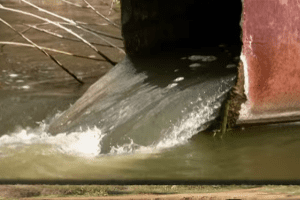
Fracking Hazardous Chemicals Could Pose Risks To Human Health. A new study of the chemicals used in hydraulic fracturing, or fracking, has found that some of them could pose a risk to human health. One of the authors of the study was Theo Colborn, president of The Endocrine Disruption Exchange and author of numerous scientific publications […]

Fracking Hazardous Chemicals Could Pose Risks To Human Health. A new study of the chemicals used in hydraulic fracturing, or fracking, has found that some of them could pose a risk to human health. One of the authors of the study was Theo Colborn, president of The Endocrine Disruption Exchange and author of numerous scientific publications about chemical compounds that alter the development of humans and other animals. The 29-page paper, entitled “Natural Gas Operations from a Public Health Perspective,” has been accepted for publication in the international journal of Human and Ecological Risk Assessment.
Colborn and her colleagues were able to identify 944 chemicals used in fracking fluids. Of those, at least 73 were found to have “10 or more adverse health effects” and should be considered potentially hazardous to humans, they said.
The study included Material Safety Data Sheets , explanatory documents that “accompany each product used during natural gas operations.” However, the researchers point out that the MSDS “are fraught with gaps in information about the formulation of the products,” and that it is up to manufacturers to decide what data they reveal.
The study authors also relied on the Chemical Abstract Service (CAS) number system designed by the American Chemical Society as a way to identify chemicals being used for a variety of purposes. The study examined “only the chemicals … for which CAS numbers were available,” according to the document, seeking to determine the potential health effects based on a list of 12 categories established for the study.
According to the study synopsis, the researchers demonstrated that toxic chemicals are used during both the fracturing and drilling phases of gas operations. The study also showed that there may be long-term health effects that are not immediately recognized, and that waste evaporation pits may contain numerous chemicals on the U.S. Environmental Protection Agency (EPA) Superfund list.
The authors continued:
“Our findings show the difficulty of developing a water quality monitoring program. To protect public health we recommend full disclosure of the contents of all products, extensive air and water monitoring, a comprehensive human health study, and regulation of hydraulic fracturing under the Safe Drinking Water Act.”
Hydraulic fracturing involves injecting water, sand, and a cocktail of chemicals at high pressure into rock formations thousands of feet below the surface. Thanks to the 2005 Energy Act, hydraulic fracturing is exempt from federal regulation under the Safe Drinking Water Act. As a result, drillers are not required to disclose the chemicals that make up fracking fluids.
The personal injury attorneys at Parker Waichman LLP offer free, no-obligation case evaluations. For more information, fill out our online contact form or call 1-800-YOURLAWYER (1-800-968-7529).


